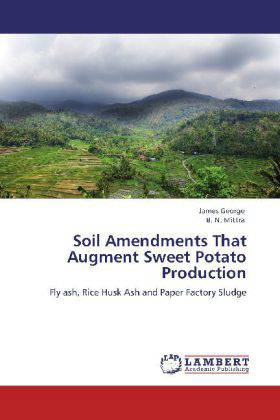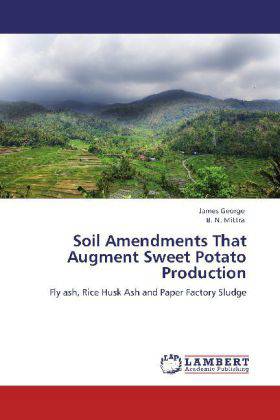
Je cadeautjes zeker op tijd in huis hebben voor de feestdagen? Kom langs in onze winkels en vind het perfecte geschenk!
- Afhalen na 1 uur in een winkel met voorraad
- Gratis thuislevering in België vanaf € 30
- Ruim aanbod met 7 miljoen producten
Je cadeautjes zeker op tijd in huis hebben voor de feestdagen? Kom langs in onze winkels en vind het perfecte geschenk!
- Afhalen na 1 uur in een winkel met voorraad
- Gratis thuislevering in België vanaf € 30
- Ruim aanbod met 7 miljoen producten
Zoeken
Soil Amendments That Augment Sweet Potato Production
Fly ash, Rice Husk Ash and Paper Factory Sludge
James George, B. N. Mittra
Paperback | Engels
€ 89,45
+ 178 punten
Omschrijving
The possibility of enhancing soil productivity through the wise use of alternative and waste materials for soil remediation cannot be ignored any more, since a large amount of disposable bio and industrial wastes are available for reuse. Some such materials like fly ash, rice husk ash and paper factory sludge, if used as soil conditioners or amendments, may prove to be advantageous from both agricultural and environmental points of view. In the present study, such waste materials were subjected to amending an acid lateritic soil where Sweet potato was cultivated as the experimental crop. Sweet potato is the world's seventh most important food crop which has the capability to produce the highest amount of calories per unit area and time. The study was conducted to identify the proper time of planting, irrigation requirement, soil amending and enriching characteristics of the industrial wastes and their influence on the growth, development, yield and quality of sweet potato.
Specificaties
Betrokkenen
- Auteur(s):
- Uitgeverij:
Inhoud
- Aantal bladzijden:
- 168
- Taal:
- Engels
Eigenschappen
- Productcode (EAN):
- 9783847341680
- Verschijningsdatum:
- 22/04/2012
- Uitvoering:
- Paperback
- Afmetingen:
- 152 mm x 220 mm
- Gewicht:
- 254 g

Alleen bij Standaard Boekhandel
+ 178 punten op je klantenkaart van Standaard Boekhandel
Beoordelingen
We publiceren alleen reviews die voldoen aan de voorwaarden voor reviews. Bekijk onze voorwaarden voor reviews.









